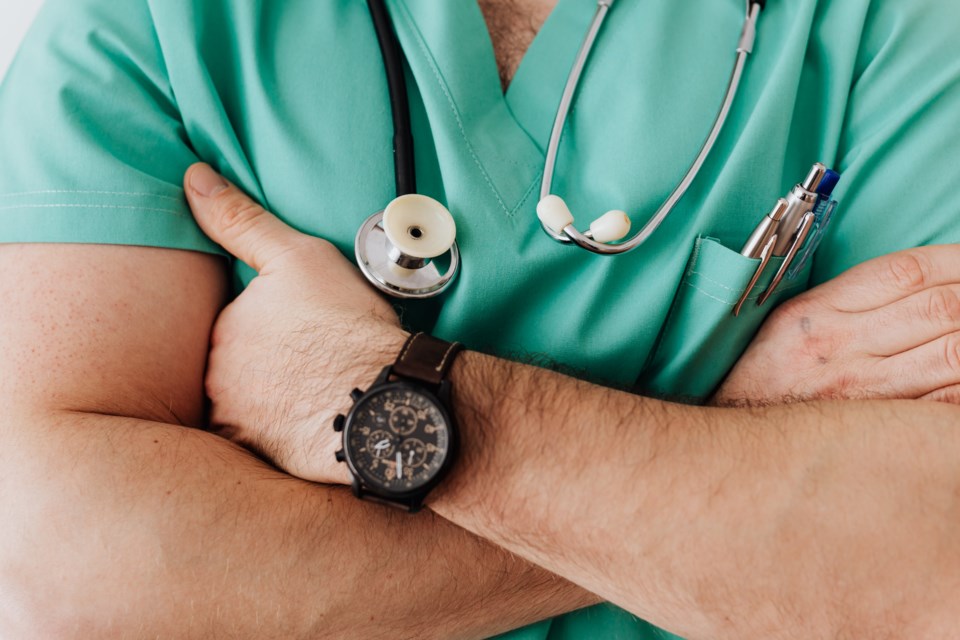The number of people experiencing post-COVID, also known as long COVID, symptoms is rising, with over 200 symptoms reported and no concrete testing criteria in place.
The province now has had over 1.3 million cases of COVID since the pandemic started; a number that is still growing as family doctors see more patients who experience symptoms for longer than two months.
Dr. Mary Jackson, a respirologist at St. Mary’s General Hospital has helped with different aspects of the pandemic, including post-COVID symptoms in local patients.
“People can have persistent symptoms in many different systems. They can have shortness of breath, they can have fatigue, they can have what they termed ‘brain fog’, anxiety, depression, skin rashes. There are many things they have attributed to this syndrome which doesn’t have a clear definition which can make it hard to study it.”
Anyone with symptoms lasting longer than two months is considered to have post-COVID, according to the World Health Organization.
Family doctors in the region are the ones trying to treat and diagnose patients, sometimes sending the more serious cases to the closest post-COVID rehabilitation clinic or program in Toronto.
“We don't have a specific program in our region for long COVID. We haven’t been given specific money as a region to set up long COVID clinics.”
Post-COVID condition can affect 1 in 3 people who have had COVID, said Dr. Ashley Verduyn, VP of Medical Affairs and Chief Medical Director of Houses of Providence.
She oversees one of the few post-COVID rehabilitation programs in the province, located at Unity Health Toronto, where some Waterloo Region residents are referred to.
“We have a long wait list now.”
“About 70 per cent of our patients are under 65. We don’t see the pediatric age range. We're seeing as young as 20 and the average age is 50 in our program.”
Their post-COVID rehab program launched just over a year ago, said Verduyn, who works with the Ontario College of Family Physicians speaking at events, informing family doctors about post-COVID and how they can help patients who are experiencing symptoms.
“We are seeing more people with lingering symptoms of COVID and family physicians are wondering what it is and how they can help their patients.”
“It’s falling on family doctors to determine if this is post-COVID,or is this something different but the treatment is mostly about managing symptoms at this point. There is no specific treatment, there are rehab programs like what we offer - to help them return to the things they were doing prior to their illness.”
Verduyn mentioned anyone who is unvaccinated has a higher risk of getting post-COVID symptoms.
The most common lingering symptoms they are seeing include fatigue, post-exertional malaise, cognitive dysfunction, shortness of breath and chest discomfort.
“It has a big impact on a patient's quality of life.”
“There was a bit of stigma attached to it before in the public and with physicians because we didn’t really know what was going on. But now we know it as an actual disorder and a risk after having a COVID infection.”
The more severe the COVID infection also means patients are more at risk of developing post-COVID symptoms.
The rehab program helps patients with their goals such as going back to work.
The first step is educating them about how to manage fatigue, the next is treatment based on their specific needs.
Fatigue and post-exertional malaise are some of the biggest factors affecting post-COVID’s patients ability to function on a day to day basis, because of how drained their bodies get from too much work or too much exercise, said Verduyn.
“We see people get better. When we started the program there was so little known about this and we see our patients improve fairly quickly with their functional abilities and then we have other patients who it’s more about learning to manage the symptoms because the symptoms are still there, they never go away completely. It can take upwards to a year.”
It can be a complicated process for patients seeking rehab programs in Ontario, often having to be referred through family doctors, some of whom may not know of the few programs like these in rural communities.
Some rehab programs will only take patients who have been hospitalized with COVID previously, said Verduyn, noting there is no coordinated response to post-COVID in Ontario.
“The majority of patients accessing our program were never hospitalized for COVID and therefore some people may not be able to access rehab that really need it.”
Alberta Health on the other hand, has a whole approach and coordinated pathway for patients to access interdisciplinary rehab for post-COVID.
“We don’t have that here in Ontario,” says Verduyn. “We don’t have a coordinated approach to rehab for patients with post-COVID condition.”
Post-COVID clinics or programs are mostly limited to big cities in the province and many of them have very limited criteria for admission into the program.
“I’d like to see a more provincial approach to accessing clinics or programs when needed. It should be for everybody, not just those that live in a big city.”
“It benefits society to get them work, to be able to do the things they need to do. It’s inequitable right now in terms of access and that needs to be fixed.”
Waterloo Region Public Health and Ontario Health both declined to comment.



